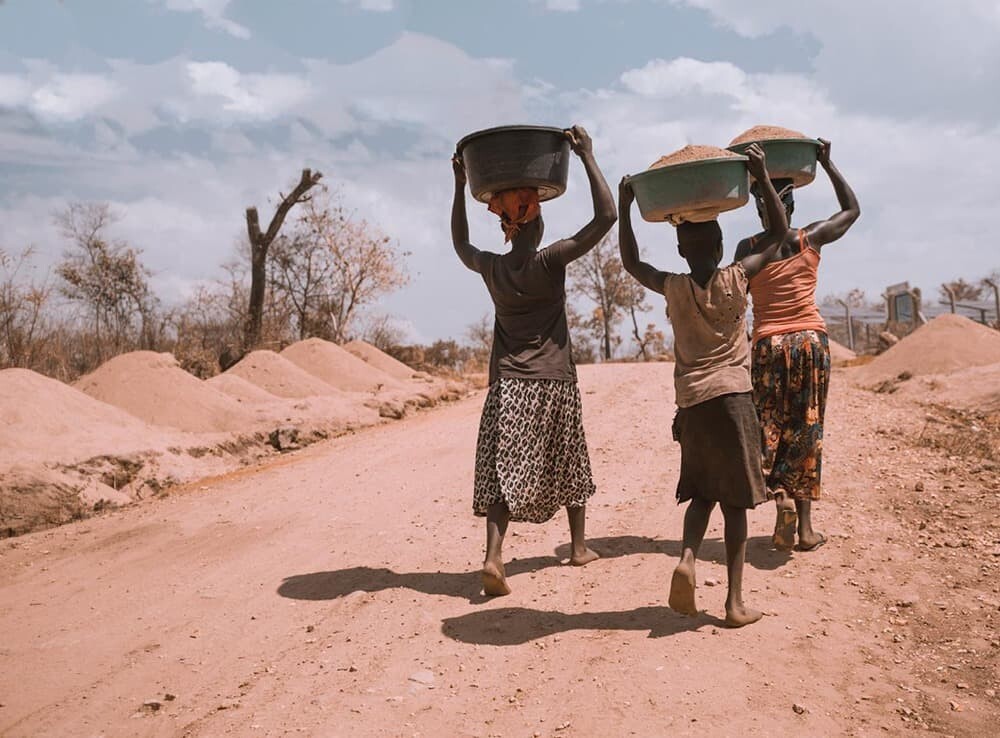Tanzania, a country located in East Africa, is known for its rich biodiversity and stunning landscapes.
To the north, it borders Kenya and Uganda, to the west, Rwanda, Burundi, and the Democratic Republic of the Congo, to the south, Zambia, Malawi, and Mozambique, and to the east, the Indian Ocean.
The official capital is Dodoma, but Dar es Salaam is the largest city and the main commercial center.
The country is famous for hosting Mount Kilimanjaro, the highest peak in Africa, and its vast protected wildlife areas, such as the Serengeti National Park and the Selous Game Reserve. These parks are home to a wide variety of fauna, including Africa’s “Big Five” animals: lion, elephant, buffalo, leopard, and rhinoceros.
Tanzania is also culturally diverse, with over 120 ethnic groups, the largest being the Sukuma, Nyamwezi, and Chagga. While Swahili and English are the official languages, today we will talk about some of the other languages you can find in this destination, which are also shared with other African countries.

SWAHILI (KISWAHILI)
Swahili, also known as Kiswahili, is a Bantu language spoken primarily in East Africa. While Tanzania is one of the countries where it is most widely spoken, it can also be found in Kenya, Uganda, Rwanda, Burundi, and parts of the Democratic Republic of the Congo and Mozambique.
As the official national language, it is widely used in public administration, education, and the media. In Tanzania, all children learn Swahili in school, and it is the main medium of instruction in primary education.
It has roots in Bantu languages but has been heavily influenced by Arabic due to centuries of trade and cultural contact along the Indian Ocean coast. It also has influences from other languages such as Portuguese, German, English, and Hindi. Swahili uses the Latin alphabet, adapted to represent specific sounds of the language. Before the 19th century, Arabic script was used in some texts.
There are several dialects of Swahili, some of which include Zanzibar Swahili (Kiswahili Sanifu, which is the standardized form), Coastal Swahili, and other local dialects. Despite the variations, the standard form is widely understood. It is a symbol of identity and unity in many East African countries. It is also one of the working languages of the African Union and the East African Community.

NILOTIC LANGUAGES
Nilotic languages are a group of languages spoken by various peoples inhabiting the Nile Valley and surrounding regions in East Africa. These languages are part of the Nilo-Saharan language family and are divided into several subfamilies. Besides Tanzania, they are also spoken in South Sudan, Uganda, Kenya, and parts of Ethiopia, among others.
Subfamilies include:
1. Western Nilotic:
- Luo: Spoken by the Luo people in Kenya and Tanzania.
- Dinka: One of the largest groups in South Sudan.
- Nuer: Spoken by the Nuer people in South Sudan and Ethiopia. – Shilluk: Also spoken in South Sudan.
2. Eastern Nilotic:
- Maasai: Spoken by the Maasai in Kenya and Tanzania. – Turkana: Spoken in Kenya.
- Karamojong: Spoken in northeastern Uganda.
- Teso: Spoken in Uganda and Kenya.
3. Southern Nilotic:
- Kalenjin: A group of languages spoken in Kenya, including various dialects such as Nandi and Kipsigis.
- Datooga (Tatoga): Spoken in Tanzania.
Many Nilotic languages use tones to distinguish word meanings, which is common in many African languages. These languages often have noun class systems, and pronouns and verb conjugations can vary by gender and person.
Despite some Nilotic languages having a considerable number of speakers, many are spoken by small communities and are at risk of disappearing due to factors such as urbanization, formal education in more dominant languages, and the influence of widely spoken languages in the region, like Swahili or English.
Nilotic languages are a vital component of the cultural and linguistic diversity of East Africa, representing a rich cultural heritage for the peoples who speak them.
BANTU LANGUAGES
Bantu languages are a large and diverse group of languages spoken primarily in sub-Saharan Africa. They are part of the Niger-Congo language family, one of the world’s largest linguistic families. It is estimated that there are over 500 Bantu languages, spoken by
hundreds of millions of people across a vast region extending from southern Cameroon to South Africa and from the Atlantic coast to the eastern regions of the African continent.
A distinctive feature of many Bantu languages is their noun class system, which classifies nouns into different categories with specific prefixes. These prefixes determine grammatical agreement in the sentence, affecting adjectives, verbs, and pronouns. Bantu languages often have tonal systems, where tone (high, low, rising, falling) can change the meaning of a word. Additionally, many Bantu languages include specific sounds like clicks in some southern African languages.
Although Bantu languages are very diverse, they share a common lexical base that allows for the identification of genetic relationships among them. This lexical base has been used to reconstruct Proto-Bantu, the common ancestral language.
Major Bantu languages include:
- Swahili (Kiswahili): (mentioned earlier). An official language of Tanzania alongside English.
- Zulu: Spoken in South Africa, it is one of the most widely spoken Bantu languages in the country and one of the official languages.
- Xhosa: Also spoken in South Africa, known for its use of click sounds.
- Shona: Spoken primarily in Zimbabwe.
- Kikuyu: Spoken in Kenya, it is the language of one of the country’s largest ethnic groups.
- Lingala: Spoken in the Democratic Republic of the Congo and the Republic of the Congo, widely used in communication and popular music.
- Kinyarwanda: Spoken in Rwanda and some parts of Uganda.
- Chichewa (Chewa): Spoken in Malawi and parts of Zambia and Mozambique.
What makes Tanzania a country with incredible cultural diversity is its variety of cultures, ethnic groups, and different traditions.
Tanzania is one of the most popular destinations for Cooperating Volunteers, as many participants choose this destination each year to live the volunteer experience and undoubtedly fall in love with its people and cultures.




